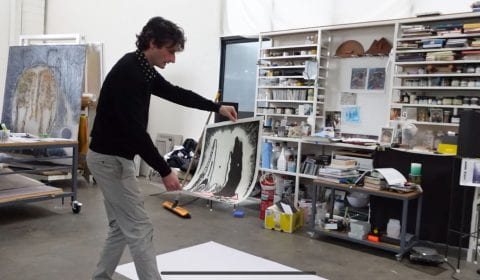I hope you can join us celebrating our Media 2 and 4 students major projects at the Media Studios Expo for semester 2, 2024. Taking place from Tuesday October 22 – Thursday October 24 at RMIT locations across campus at The Capitol!
Media Exhibitions Sem 1 ’23
Mon 29 May
1:30-2:30pm: Art of the Microbudget (online, details here)
Wed 31 May
10:45am: Welcome (80.1.2)
11-12: Designing Drama (80.1.2)
12-1pm: BREAK
1-2:30pm: Real-World Media (10.2.62)
1-2:30pm: Room With A View (12.2.104)
1:30-3:30pm: People + Places (80.11.10)
1:00-3:00pm: Ready Camera One (TV Studio A)
4:00-5:30pm: Entangled Media (TV Studio A)
3-4:45pm: Sound Futures (10.2.62)
3-4:45pm: Poetic Video (12.2.104)
7-11pm: Debut International Film Festival — Opening Night (The Festival Experience)
Thu 1 June
11:30-2: Power of the Cut (80.1.2)
2-3:30pm: Immersive Sandbox (80.4.11)
Debut International Film Festival — program HERE … (Kaleide Theatre)
Fri 2 June
Debut International Film Festival — program HERE … (Kaleide Theatre)
Deconstructing Fed Square
More details HERE!
Semester 1 Studio Exhibitions Gallery
Some happy snaps from the Studio Screenings and Exhibitions for Semester 1, 2022. Well done everyone!
Semester 1 Studio Gallery
As Week 12 draws steadily to a close, and we look forward to our Studio Exhibitions and Screenings next week, let’s take a look back at the semester that was!
Media Student Festival Success
from Sarah Menegon
My short documentary film RUBY has been selected for entry to the 4th Annual MULTICULTURAL FILM FESTIVAL which will take place online this year. I’m thrilled with the response to it so far. My film was created as a part of the fantastic studio REAL TO REEL about my friend Ruby. Ruby moved to Melbourne to start a new adventure, but her family back home had other plans. Marriage in her culture is a family affair where everyone is involved. Ruby’s family have been on the hunt for someone to “take care of her” for years now but Ruby was in no rush to settle.
Additionally, RUBY will be a part of Swinburne research project ‘Zooming In’ which is an online portal used to explore contemporary multicultural life through the lens and will join their travelling roadshow ‘Zooming Out’ which tours multicultural films to regional Victorian towns’ screening to diverse audiences.
NEWS JUST IN: 16 September 2021
RUBY has just been accepted to screen on Femflix the first BcommMedia work to be part of a paid streaming service!
NEWS JUST IN: 16 September 2021
The multicultural film festival Ruby will be on SBS on demand and shown on the big screen at Fed Square.













































































































